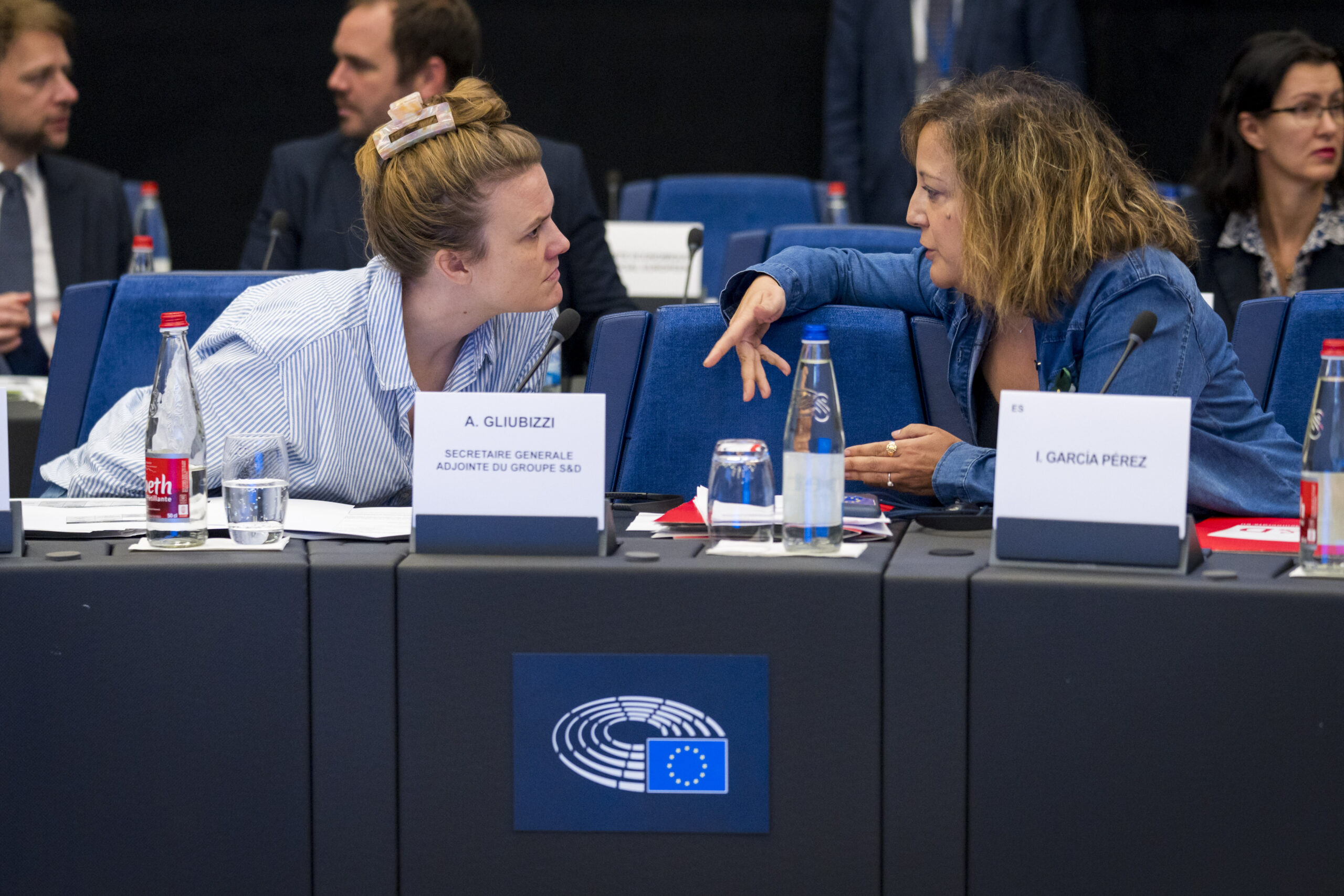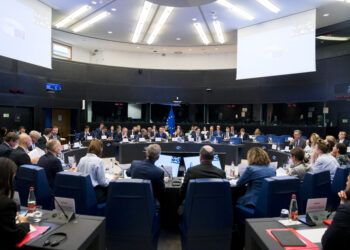Brussels – A decisive week for the fate of Ursula von der Leyen‘s new term begins today (Nov. 4). It is the week of the hearings of the EU commissioners-designate, who will submit one by one to the scrutiny of the European Parliament committees responsible for their portfolios. The highlight will be Tuesday (Nov. 12), when it will be the turn of the six executive deputy presidents. The spotlights are on Raffaele Fitto, on whose nomination Socialists, Greens, and Liberals have promised battle. For the hearing of the commissioner from the party of Italian premier Giorgia Meloni to go smoothly, the first requirement is that political groups do not clash already during the hearings of the simple commissioners.
The first hearing will be that of Maroš Šefčovič, former vice-president of the European Commission, now appointed to the post of trade, transparency, and institutional relations. Following him, also later today, will be Maltese social democrat Glenn Micallef, responsible for youth culture and sports, Greek Apostolos Tzitzikostas, of the European People’s Party (EPP), designated to the transport and tourism portfolio, and Luxembourger Cristophe Hansen, also a Popular, who in the next EU executive is expected to be responsible for agriculture.

Tomorrow and Wednesday (Nov. 5-6), at a rate of six a day, Liberal Irishman Michael McGrath, with delegation to justice and democracy, popular Bulgarian Ekaterina Zaharieva, designated to the research and innovation portfolio, Danish Social Democrat Dan Jørgensen, with delegation to energy and housing, and so on, all the others will appear before MEPs. On Thursday (Nov. 7), the last four simple commissioners will close. It will then resume on Tuesday, Nov. 12, the day devoted to hearings of the six executive vice presidents. Of the 26 commissioners-designate – one from each country, the 27th being (German) President von der Leyen – as many as 13 are expressions of the EPP. Four are from the Social Democratic family (plus Šefčovič, whose national party SMER was suspended from S&D last year), and five are from Renew Liberals. Then there are two independents – Olivér Várhelyi, who is very close to Hungarian Prime Minister Viktor Orbán and his Patriots for Europe (PfE) group, and Czech Jozef Síkela, who gravitates, however, to the sphere of the EPP. Raffaele Fitto, to whom von der Leyen has given the reform and cohesion portfolio, is the only designated expression of the European Reformists and Conservatives (ECR).
After a brief initial speech of about 15 minutes, everyone will come under the scrutiny of the relevant parliamentary committees for about three hours, during which they will have to try to demonstrate the independence, expertise, and European commitment required to serve on the new European Commission. The chairs of the parliamentary committees invited to the hearing can ask the candidates a question. Once the hearings are over, the political group coordinators and committee chair will draft the evaluation letters answering two key questions: whether the commissioners-designate is “qualified to be members of the College” and if they are “suitable for the portfolio” entrusted to them.
If the outcome is negative, the rejected nominee can be withdrawn by their home state and replaced by a new nominee, who must, in turn, appear for a confirmation hearing in Parliament. The last time, in 2019, the only rejected commissioner-designate after the hearing was Frenchwoman Sylvie Goulard, who Paris replaced with Thierry Breton. Also five years ago, Hungary’s Rovana Plumb and Romania’s László Trócsányi were replaced by Olivér Várhelyi and Adina Valean because they did not pass the preliminary review of conflict of interest statements.
The rift in the EU majority over commissioners
The political groups that supported von der Leyen’s re-election – who would therefore have every interest in seeing the new Commission established – do not come to the hearings in a relaxed atmosphere. The European People’s Party, which, after having overwhelmingly won the European elections in June, can afford to exercise control in the European Parliament, is putting a significant strain on the holding of the cordon sanitaire against the extreme right and, therefore, also the strength of the majority formed together with the Socialists and Liberals, with the external support of the Greens.

Precisely over the timing of the hearings, a bitter clash between the political group chairs broke out, with the EPP setting the order of candidates by voting together with the far-right groups (Conservatives, Patriots, and Sovereigntists). The Socialists wanted the six executive vice presidents to inaugurate the hearings round. Once it was decided that they would be on Nov. 12, none of the progressive majority groups agreed with the chosen order. No one wants their candidate to submit to the scrutiny of the parliamentary committees last because that is the one on which the tensions built up among the political groups throughout the hearings process are likely to affect. Instead of Fitto – as the three progressive groups would have wanted – the last two will be Popular Henna Virkkunen and Socialist Teresa Ribera.
It is almost a guarantee for Meloni’s candidate, the most at risk because of his membership to a party (Fratelli d’Italia) that did not support von der Leyen’s confirmation. If the Socialists, Liberals, and Greens decide to go all the way and reject Fitto, the loser would be Socialist Vice-President Ribera. At that point, the Populars could wink one more time at the right wing of the European Parliament and reject the Spanish candidate. It is a game of entanglements from which, if the political groups decide to lay down their arms, the new college of EU commissioners should emerge, which would then be finally approved — or rejected — by the entire European Parliament, hearings permitting, during the plenary session Nov. 26-28, to take office on Dec. 1.
English version by the Translation Service of Withub







